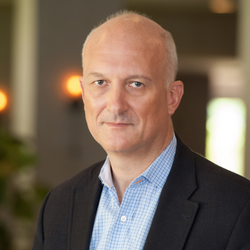ACLS Community Message for August 2024
How many of us have been called upon to justify the cost of a liberal arts education? Or to define and explain “the liberal arts” with some precision?

As part of the Mellon Foundation’s 2016-2018 Research Forum on the liberal arts, University of Wisconsin–Madison philosopher Harry Brighouse outlined a few key lenses for understanding this oft-discussed but rarely defined educational philosophy:
- A curriculum defined by both depth and breadth—pursuing both a major field of study, usually not in a pre-professional field, and exposure to other academic subjects
- An institutional home “in which most of the majors associated with traditional, academic, non-pre-professional disciplines are housed,” such as a liberal arts college or the arts and sciences division of a university
- A set of educational aims, such as the capacity to think critically and independently and to write, reason, and communicate clearly.
An educational philosophy, however, doesn’t develop in the stillness of a glade on an isolated mountaintop. The complex and diverse landscape of US higher education and our society’s wide range of expectations of those institutions provide the backdrop for the story. A higher education enterprise that went from educating the elite four percent of the population at the beginning of the twentieth century to one that now touches almost 60 percent of the population also frames why and how an educational philosophy arose that prepares students for both life and work rather than only for the workforce. Many of us believe that this approach of exploration and the liberal—free, not politically liberal—pursuit of truth is the proverbial “secret sauce” of US higher education.
But belief isn’t enough to justify, as so many of us are constantly called to do. With increasing calls to defend our disciplines in the face of state funding, institutional budget cuts, and arguments about their value in terms of job readiness, “making the case” has become more urgent than ever. So when the Arthur Vining Davis Foundations offered the opportunity to support empirical research on this topic, ACLS seized the chance despite it being a bit outside of our usual programmatic path.
ACLS is currently overseeing a fellowship program supporting scholars using College and Beyond II, a database that tracks the undergraduate careers of over one million students from 19 institutions, to support research on whether, how, and in what ways a liberal arts education matters. The resulting scholarship of the AVDF/ACLS Fellows for Research in the Liberal Arts will explore topics such as how a liberal arts education cultivates democratic citizenship, influences personal well-being, or translates into economic value. The data allows the fellows to examine the effects on students of various approaches to financial aid or switching majors. This new empirical research will enable students, parents, faculty, administrators, and policymakers to understand a little better how this long-cherished but rarely-studied method of education affects students’ lives.
It’s fascinating (at least for those of us who think about not just the what of scholarship but also about the how) to reflect on all of the players who have played a part in making this research on the liberal arts possible. The Mellon Foundation supported the building of the database because they believe that these fields are worth understanding and defending. A talented team of social scientists, administrators, survey designers, and institutional researchers based at the Inter-university Consortium for Political and Social Research (ICPSR) at the University of Michigan spent years working with colleagues across the country to design, compile, and carefully steward the enormous database of student records and follow-up surveys. The Arthur Vining Davis Foundations developed a program supporting the liberal arts, knowing that their founder valued his liberal arts education and felt that “the broad training that he received as a student equipped him to play a number of roles during his career: scientific innovator, corporate entrepreneur, real estate developer, and orchid farmer, to name just a few.” By supporting scholarship that relies upon the database, the Foundations seek to advance the understanding that can come from research aimed at supporting policy questions of public interest and also to raise awareness about the existence of this unusual and still relatively unknown dataset.
For our part, ACLS has gained experience at the craft of managing peer-reviewed fellowship competitions over our 100+ year history—from writing calls for applications that are cogent and that correspond to the criteria which review panels will rely upon, enlisting appropriate reviewers, ensuring that applicants are eligible and that the panel has what it needs to conduct a thorough review, to the relevant infrastructures for promoting the competition and ensuring careful financial stewardship of the funds and the payments. To help promote the competition, we relied upon the networks of ACLS member societies (including the American Political Science Association, the American Sociological Association, and the American Historical Association). Most importantly, this research, of course, requires the scholars who generate projects in their applications and those who have been supported to create relevant new knowledge.
From there, the work will continue since it is crucial to amplify the findings and work them into our collective understanding through publication and dissemination through various networks. The AVDF/ACLS Fellowship Program includes a workshop with journalists next summer to help do this. We are pleased to have taken these steps to improve upon an impressionistic appreciation of the liberal arts—including but not limited to the humanistic fields that ACLS member societies support—thanks to all of these colleagues across the sector.
James Shulman
ACLS Vice President and Chief Operating Officer

